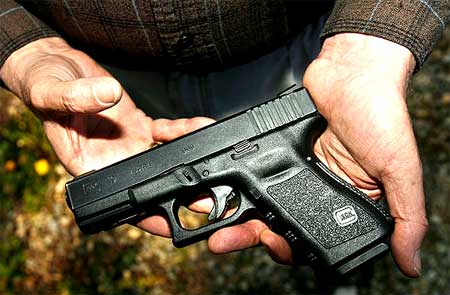SAF Reports Live From The UN Arms Trade Treaty As Planning Continues On How To Ban Your Guns
The final treaty will register all firearms, require micro-stamping, destruction of surplus ammunition and restriction on any transfer of arms.


Argentina – -(Ammoland.com)- The Following is an up to the minute report from Julianne Versnel, Director of Operations for the Second Amendment Foundation who is representing SAF as an NGO delegate at the United Nations ATT meeting.
The Arms Trade Treaty Prep Committee began on July 12, 2010 and will conclude on July 23, 2010. Ambassador Roberto Garcia Moritan of Argentina is the Chair.
On Friday, July 19, Non-Governmental Organization (NGO) representatives were told that the majority of the meetings would be closed to them. The critical discussions on the scope of the treaty will have no input from any non-governmental entity. Scope is critical in the Arms Trade Treaty process. In North America, some Pan Asian Countries and in some other parts of the world, the arms that we expect to have covered in this treaty are nuclear weapons. In much of Europe and most all of Africa, the delegates anticipate that the ATT will cover rifles, shotguns, handguns and ammunition as well.
There appears little doubt that some sort of treaty will be adopted by 2014, if not by 2012. It is anticipated that the final treaty will attempt to register all firearms, require micro-stamping, destruction of surplus ammunition on a very set schedule, registration of all firearms and restriction on any transfer of arms including between private individuals and many other restrictions.
If the United States is a signatory and this is ratified by the U.S. Senate, this UN treaty would be the law. On October 30, 2009, UN members voted in favor of an ATT. The United States voted in favor of an ATT.
The UN has an aggressive schedule of meetings planned to push for these restrictions and we will be there representing you in every way we can. We will be at the CTOP/COP meeting in Vienna the week of October 18 and a General Assembly meeting at the end of October. In January, the five permanent members of the Security Council will meet and this is on the agenda. There will be another ATT Preparatory meeting at the end of February in New York.
The regional UNIDIR meeting sponsored by the EU will start in March. We will come full circle with the Programme of Action Experts Meeting in May 2011 and the July 17-21 ATT Preparatory meeting that is expected to offer the final draft to the treaty.
